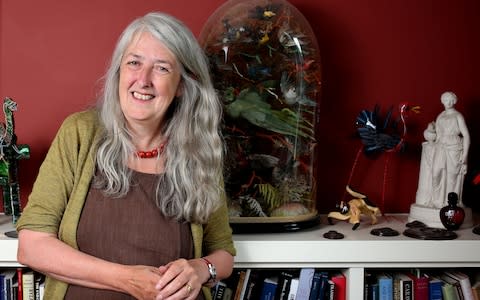Cambridge students warned Shakespeare plays may distress them

Cambridge University academics have hit out at “trigger warnings” after students were cautioned that Shakespeare’s plays contain potentially distressing topics.
English literature undergraduates have been advised that a lecture which focusses on Shakespeare’s Titus Andronicus and The Comedy of Errors will include “discussions of sexual violence” and “sexual assault”.
The trigger warnings were published in the English Faculty’s “Notes on Lectures” document, which is circulated to students.
Gill Evans, emeritus professor of medieval theology and intellectual history at Cambridge University, said that the move will leave academics “very annoyed”.

She said it is “likely to be motivated by a genuine wish not to risk upsetting students” but added that it is part of a trend to appease today’s "hyper-sensitive" youngsters.
“Interfering with academic courses for non-academic reasons is so important, and it ought to be approved by Regent House,” she said. “Obviously one would not want to be heartless. But you’ve got to learn to be a bit resilient”.
“Trigger warnings” were printed alongside the description of at least one English Literature lecture and one seminar due to take place this term.
One was a lecture on Violence, which was billed as a discussion of “control and consequence; when do we laugh at violence, and why?; credulity and sympathy”, focussing particularly on Shakespeare’s The Comedy of Errors and Titus Andronicus and Sarah Kane’s Blasted.
Another seminar titled Inhibiting the Body carried a warning that it will contain a “discussion of sexually explicit scenes” and “scenes of sexual assault”.

Prior reading for the seminar includes Euripides' Hippolytus and The Bacchae and Sarah Kane's Phaedra’s Love. Dr
David Crilly, artistic director at The Cambridge Shakespeare Festival, added: “In Shakespeare, most of the sexual violence is implied rather than overtly stated, and whoever directs the play is responsible for how visual that is.
“If a student of English Literature doesn’t know what Titus Andronicus contains scenes of violence they shouldn’t be on the course.
“This degree of sensitivity will inevitably curtail academic freedom. If the academic staff are concerned they might say something students find uncomfortable they will avoid doing it.”
Cambridge is the latest of universities to issue trigger warnings to students. The University of Glasgow alerted theology students that they may see distressing images of the crucifixion of Jesus Christ and gave them the opportunity to leave the room.

Law lecturers at the University of Oxford were reportedly asked to deliver trigger warnings before lectures on cases involving violence or death, and students were advised they could leave if they are worried that the content will be too “distressing”.
Mary Beard, a Professor of Classics at Cambridge University, has previously said that allowing students to avoid learning about traumatic episodes of history and literature is “fundamentally dishonest”.
She added: “We have to encourage students to be able to face that, even when they find they're awkward and difficult for all kinds of good reasons."
A Cambridge University spokesman said that the English Faculty does not have a policy on trigger warnings, but added: “Some lecturers indicate that some sensitive material will be covered in a lecture by informing the English Faculty Admin staff who prepare the Faculty’s 'Notes on Lectures' which are distributed to English students.
"This is entirely at the lecturer’s own discretion and is in no way indicative of a Faculty wide policy.”

 Yahoo News
Yahoo News 
